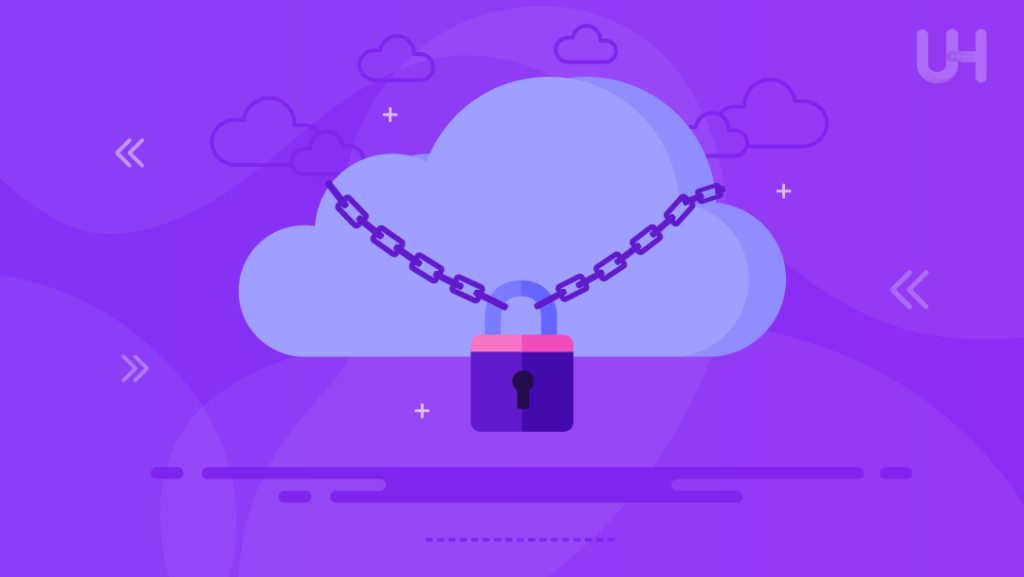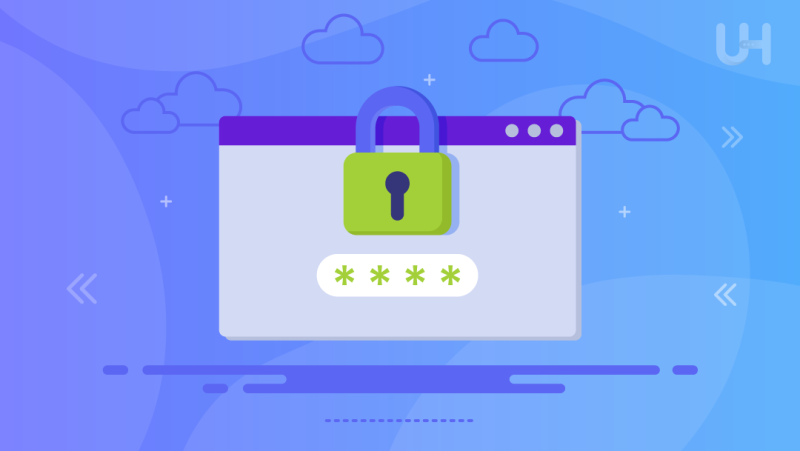Passwords are still the most important way to secure online accounts and sensitive data. Even with new security tools such as biometric scans or passkeys, most systems still rely on passwords for authentication. Hackers are always looking for weak or reused passwords to exploit, which makes strong password practices more essential than ever. Without secure passwords, businesses, individuals, and governments face a high risk of data breaches. Passwords are the first line of defense against unauthorized access and protection of digital identities.
In 2025, password security is still an important part of information protection. With cyber threats becoming more sophisticated, users must adhere to updated security practices, as cybersecurity statistics 2024 highlight an increase in attacks exploiting outdated credentials. In this blog, we will explain why passwords are still relevant and how they work with modern tools like multi-factor authentication (MFA).
Why Passwords Are Important?
Passwords are essential because they protect online accounts from unauthorized access and data breaches.
Historical Context
Since the early days of the internet, passwords have been protecting digital data. People used them to secure email accounts and devices when online threats were less complex. Data security is important in cloud computing and digital services spanning global markets. Cybercriminals then found ways to crack weak passwords, and therefore, stronger ones became necessary. Password requirements became more complex as technology grew to keep up with increasing security risks. To this day, passwords are still one of the most trusted methods of protecting digital accounts from unauthorized access.
Current Relevance
In 2025, most platforms still utilize password-based authentication as a primary security tool. On most websites and apps, users are still asked to create passwords to enter those sites. Businesses still protect sensitive information through policies on passwords. Technological advancements like face recognition and fingerprint scans do not make passwords obsolete. Hackers focus more on breaking weak passwords, thus making secure ones more vital than ever. The first barrier against cyberattacks is a strong password.
Complementary Security Measures
Passwords work well when complemented with other security measures, including multi-factor authentication (MFA). It provides an additional layer of security other than passwords by addressing password vulnerabilities and improving account protection against unauthorized access to the website servers. MFA adds another step to the login process, for example, requiring a code to be entered, which has been sent to your phone, or confirming your identity through an application. This step makes it hard for hackers to access your account even if they know your password. Passwords and MFA combined form a strong security system. Though passwords are critically needed, using MFA keeps users better secured against all modern threats.
Statistics
According to statistics, weak passwords are among the most common causes of data breaches. According to reports, more than 80 percent of hacking cases are because of stolen or reused passwords. Hackers sometimes use passwords such as “123456” or “password” to access accounts. For example, in recent breaches, hackers used leaked passwords from one platform to hack into accounts on other platforms. This proves that password reuse is risky. Businesses with strong password policies are less likely to face security breaches, showing that secure passwords are still critical in preventing attacks.
Secure Your Online Presence with the Right Hosting
Strong passwords are just the start of safeguarding your website. For ultimate security, pair them with reliable hosting designed to protect your data. Discover UltaHost Secure WordPress Hosting and experience top-notch protection and peace of mind.
Password Policy Best Practices
A password policy refers to the creation of rules that organizations make to ensure the use of safe passwords by employees. It will help protect sensitive information from hackers by enforcing great password practices. The requirements are set for employees on usage of strong and changed passwords at required times. Having a clear policy reduces the business from security breaches caused by weak or reused passwords. Good passwords protect organizations’ systems in the world of increasing cyber threats. Good password policies have a few key rules to enhance security. However, it raises privacy concerns regarding data storage on fast servers and encryption practices to protect sensitive biometric data.
Employees must change their passwords regularly to reduce the chance of their loss due to theft, Employers must avoid using similar old passwords because hackers commonly use the leaked passwords from past breaches; they must enforce rules limiting the usage of previously used passwords and put an expiration on these passwords. Finally, employees need to be trained to avoid careless mistakes on passwords. With knowledge of the risks involved, employees help protect their organization against cyber attacks if they follow secure practices.
Password Complexity and Security
Password complexity is essential for protecting accounts by making passwords harder to guess and crack.
What is Password Complexity?
The term password complexity refers to generating very hard passwords that are impossible for hackers to crack. It combines uppercase letters and lowercase letters and numbers along with special characters @ or # and so on. The complexity level of passwords raises the difficulties of cracking for a hacker. The easy passwords are vulnerable to being cracked using automated tools, while a complex password may take ages before someone can guess it. When you increase password complexity, it means your account becomes harder to hack and therefore lowers the hacking possibilities.
Avoiding Common Pitfalls
Most people in the world today use weak passwords without knowing the dangers. Hackers check the first simple passwords, such as “123456,” “password,” or “qwerty.” Passwords containing predictable patterns like birth dates or pet names are also easy for hackers to guess. Cybercriminals find personal data from social media and can use that information to steal other accounts quickly. Avoid using personal information and use unique, random passwords instead to ensure your safety.
Password Managers
Managing multiple complex passwords can be challenging, especially when you have many accounts. This is where password managers come in handy. These tools safely store your passwords and automatically fill them in as you log into a website. Password managers also generate strong, random passwords that are hard to guess. You don’t need to remember several complex passwords if you use a password manager. Instead, you only need to remember one master password, making it easier to maintain strong security across all your accounts.
The role of password length
Password length is a key factor in security, as longer passwords are harder for hackers to crack.
Length vs Complexity
Password length is a more critical factor in security than most think. A longer password is much tougher for hackers to crack, even if it has simpler characters. For instance, an 8-character password with symbols and numbers would be less secure than a 15-character password. This is because longer passwords take more time for hackers to prevent brute-force attacks. Although complexity is key, focusing on length gives better protection. A long password makes it hard for cybercriminals to break into your accounts.
Optimal Password Length
Cybersecurity experts recommend using passwords at least 12 to 16 characters long. Short passwords are no longer safe for hackers now because advanced tools are available by which hackers can guess the password easily. A more extensive password provides significantly more possible combinations, making it much harder to break. You should use even longer passwords if you store personal or financial information for sensitive accounts. For the length as mentioned earlier, it will ensure that your passwords are secure against the current menace.
Passphrases
A passphrase is a longer password comprising multiple random words or phrases. A passphrase is easier to remember but, on the other hand, it’s still very secure. For instance, “YellowDogSkyRocket! ” is safer and easier to recall than a short and complicated password like “Jd! 34×7.” The risk of using personal details from which hackers can guess will be lessened with passphrases. Because passphrases are lengthy and unique, they provide security while at the same time becoming usable. Using a passphrase ensures that creating difficult, rememberable passwords that protect your account from cyber attackers is simpler.

Best Practices for 2025 and Beyond
Following best practices for password security is essential in 2025 and beyond. Both individuals and organizations must take steps to strengthen their password policies. Cyber threats are growing, so having secure login methods is more important than ever. Below are practical tips for both individuals and businesses to improve password security and reduce risks.
Practical Tips for Individuals
- Creating unique passwords for each account: Individuals can improve their online security by using smarter password practices. Start by creating unique passwords for each account. When you use the same password across multiple platforms, hackers can access all your accounts if one password is leaked. By using different passwords, you limit the damage from potential breaches.
- Enable multi-factor authentication (MFA): Another important tip is to enable multi-factor authentication (MFA) wherever possible. MFA adds an extra layer of protection by requiring a second verification step, such as a code sent to your phone. This way, even if someone steals your password, they cannot access your account without the second factor.
- Regularly review and update your passwords: It’s also important to regularly review and update your passwords. Cyber threats evolve, and outdated passwords can become weak over time. Make a habit of changing your passwords every few months to stay protected. Additionally, avoid reusing old passwords and use password managers to generate secure ones.
Guidelines for Organizations
- Implement robust password policies: Organizations must take password security seriously to protect their systems and data. First, implement robust password policies that require employees to create strong and long passwords. These policies should also include rules for regular password updates and preventing the reuse of old passwords.
- Invest in employee cybersecurity training: Businesses should also invest in employee cybersecurity training. Many security breaches happen because employees use weak passwords or fall for phishing attacks. By educating staff on password best practices, companies reduce the chances of human error leading to security incidents.
- Monitor and enforce compliance: Finally, it is important to monitor and enforce compliance with security standards. Companies must regularly check whether employees follow password policies. Security teams should conduct audits to identify weak practices and address any issues. By staying proactive, organizations can significantly reduce password-related risks and strengthen their overall cybersecurity.
Conclusion
Passwords remain a critical part of digital security, even in 2025. They are the first line of defense against hackers and data breaches. Strong passwords, combined with multi-factor authentication, greatly reduce the risk of cyberattacks. Both individuals and organizations must follow best practices to stay safe online. Using long, unique, and complex passwords is no longer optional — it is necessary. Start improving your password habits today to protect your personal and business data. By taking simple steps now, you can secure your digital life and prevent future risks.
For advanced security, check out Ultahost’s DDoS-Protected VPS and keep your online assets safe from attacks. Secure your future today! As cyber threats evolve, staying ahead with secure passwords and robust hosting solutions is essential.
FAQ
Why are passwords important in 2025?
Passwords are important because they act as the first defense against unauthorized access to accounts and sensitive data.
What are the best password policy practices for businesses?
Businesses should require strong, unique passwords, enable MFA, and provide cybersecurity training to employees.
How does password complexity improve security?
Password complexity makes passwords harder to guess by using a mix of uppercase, lowercase, numbers, and special characters.
Are password managers safe to use?
Yes, reputable password managers are safe and highly recommended. They use strong encryption to protect your passwords, making it nearly impossible for unauthorized access. Always choose a well-reviewed and trusted provider.
Why is password security important for individuals?
Password security is important to protect personal accounts from hacking, identity theft, and financial loss.
What is the difference between password length and complexity?
Password length refers to how many characters are used, while complexity focuses on using various character types.
Why should businesses enforce regular password updates?
Regular password updates help reduce the risk of breaches from compromised or outdated credentials.










